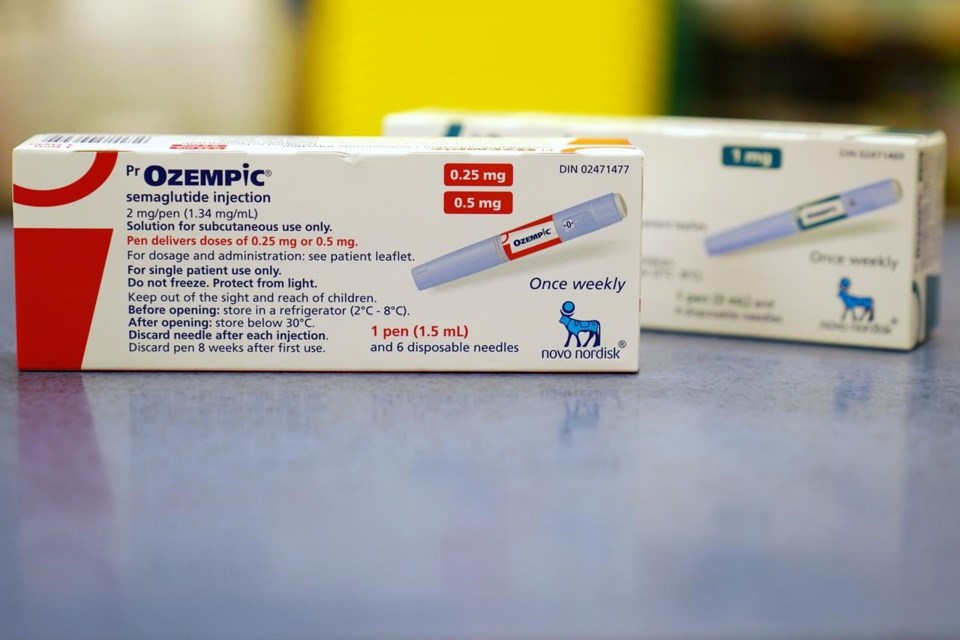VICTORIA — The British Columbia government says there's been a 99 per cent drop in the number of online Ozempic prescriptions filled by Americans from pharmacies in that province since it introduced regulations to protect the local supply for diabetes patients.
Weight loss is one of the side-effects of the injectable medication, sparking a huge uptick in its popularity, with Americans ordering it from two Vancouver-area pharmacies at cheaper prices than in the U.S.
The Health Ministry said 30,700 prescriptions for the injectable medication were mailed to the United States from Jan. 1 to April 19. But between April 20 and May 31, that number fell to 111 prescriptions shipped to American residents.
Health Minister Adrian Dix announced legislation on April 19 that aims to prevent a shortage of the drug semaglutide, which includes Ozempic, the pill form Rybelsus, and Wegovy, specifically used to treat obesity.
Online purchases of the medication were restricted for foreigners, who can still buy it at a pharmacy if they happen to need it while visiting Canada, Dix said.
In January, the province provided limited coverage of Ozempic as a second-line therapy for Type 2 diabetes patients to help manage blood-sugar levels if metformin is not effective. That caused a surge in demand for Ozempic from U.S. residents, who received 88 per cent of the total prescriptions filled by the end of February.
Dix said that while there is no shortage of Ozempic in B.C. or elsewhere in Canada, the legislation could be used if there are potential shortages of other drugs in the future.
"This is something that we have to continue to monitor because this won't be the last drugs of interest in this way," said Dix, adding the lack of some injection products limited the supply of Ozempic in parts of the U.S.
Its high cost also drew customers to Canada after hype from social media influencers and celebrities about its weight-loss effects.
A Texas-based doctor with a licence to practise in Nova Scotia allegedly prescribed Ozempic to American residents. He was temporarily suspended after writing 17,000 prescriptions for the medication that was shipped to the U.S.
The College of Physicians and Surgeons of Nova Scotia is continuing its investigation while the College of Pharmacists of B.C. investigates the actions of two online pharmacies that filled the prescriptions.
Federal Health Minister Jean-Yves Duclos said in mid-April that regulations governing medical practice may have to be strengthened by regulatory colleges in each province to prevent "incompetence" by other doctors who could also write thousands of prescriptions for drugs headed outside of the country.
Duclos said he would be raising the issue with his provincial counterparts so Canadians have access to the drugs they need.
Dix said health ministers are set to meet this fall and will likely discuss what steps they could take "as a team" when it comes to online prescription drug sales to foreign customers.
However, he said that while each province has its own regulatory college, "the sale of a drug internationally is also a federal matter. So, there are some steps (the federal government) needs to take."
"The broader issue is that the intent wasn't for us to be supplied with Ozempic (from the U.S.) so we could sell it back."
This report by The Canadian Press was first published June 16, 2023.
Canadian Press health coverage receives support through a partnership with the Canadian Medical Association. CP is solely responsible for this content.
Camille Bains, The Canadian Press




